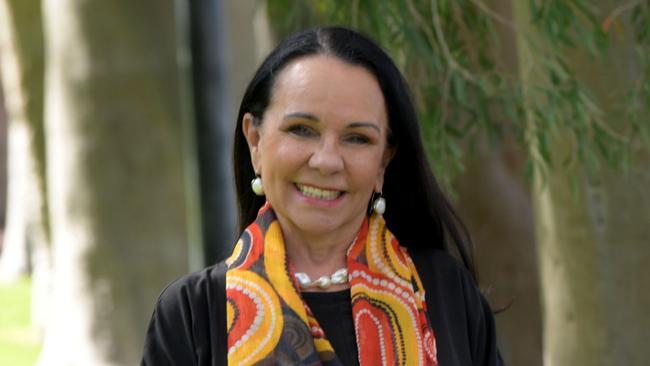Indigenous voice to parliament referendum belongs to the people not politicians, says Linda Burney
A civics campaign in May and June will set out the basics of the voice to parliament referendum where Australians have not yet heard of the proposed advisory body or have questions about its purpose and function.

A civics campaign in May and June will set out the basics of the voice referendum in cities, regional centres and remote communities where Australians have not yet heard of the proposed advisory body or have questions about its purpose and function.
Indigenous Australians Minister Linda Burney announced the timing of the education campaign while in Perth on Wednesday to discuss the voice with Aboriginal people from the state’s southwest, goldfields and Warburton, a desert community of 500 Aboriginal people inside the West Australian border, but closer to Alice Springs than Perth.
“I know local campaigns are kicking off at the grassroots level with conversations starting about the voice, why it matters and how it will make a difference here in Western Australia,” she said. “It is so very very important that people take time to get informed, which is why we are here today because there is a groundswell of support across Australia to say yes to the constitutional recognition through the voice.”
Ms Burney said she spoke to the small group of Indigenous leaders in Perth about how to involve their communities in conversations about the voice referendum to be held towards the end of the year. Her talks with Indigenous Australians have so far focused on the needs and aspirations of the communities they come from.
Ms Burney had dinner in Perth on Tuesday with her predecessor Ken Wyatt, who quit the Liberal Party last week over Opposition Leader Peter Dutton’s decision to campaign against the voice.
Mr Wyatt’s cabinet peers were overwhelmingly hostile to an enshrined Indigenous Voice when the Coalition was in government, but he commissioned a report on what a legislated voice could look like. That report, completed in 2021, is a 272-page proposal for “a voice to advise government, as well as parliament”.
On Wednesday Mr Wyatt predicted the voice would concentrate on the 17 targets in the national agreement on Closing the Gap, some of which had been widening.
For example, the proportion of Indigenous five-year-olds who are developmentally on track when they start school has fallen.
“There is still time for Mr Dutton to have a change of heart, and I encourage him to walk with us on this journey,” Ms Burney said.
“But at the end of the day, this referendum is not about politicians. Mr Dutton gets one vote, just like every citizen in this country. The referendum belongs to the people.”




To join the conversation, please log in. Don't have an account? Register
Join the conversation, you are commenting as Logout